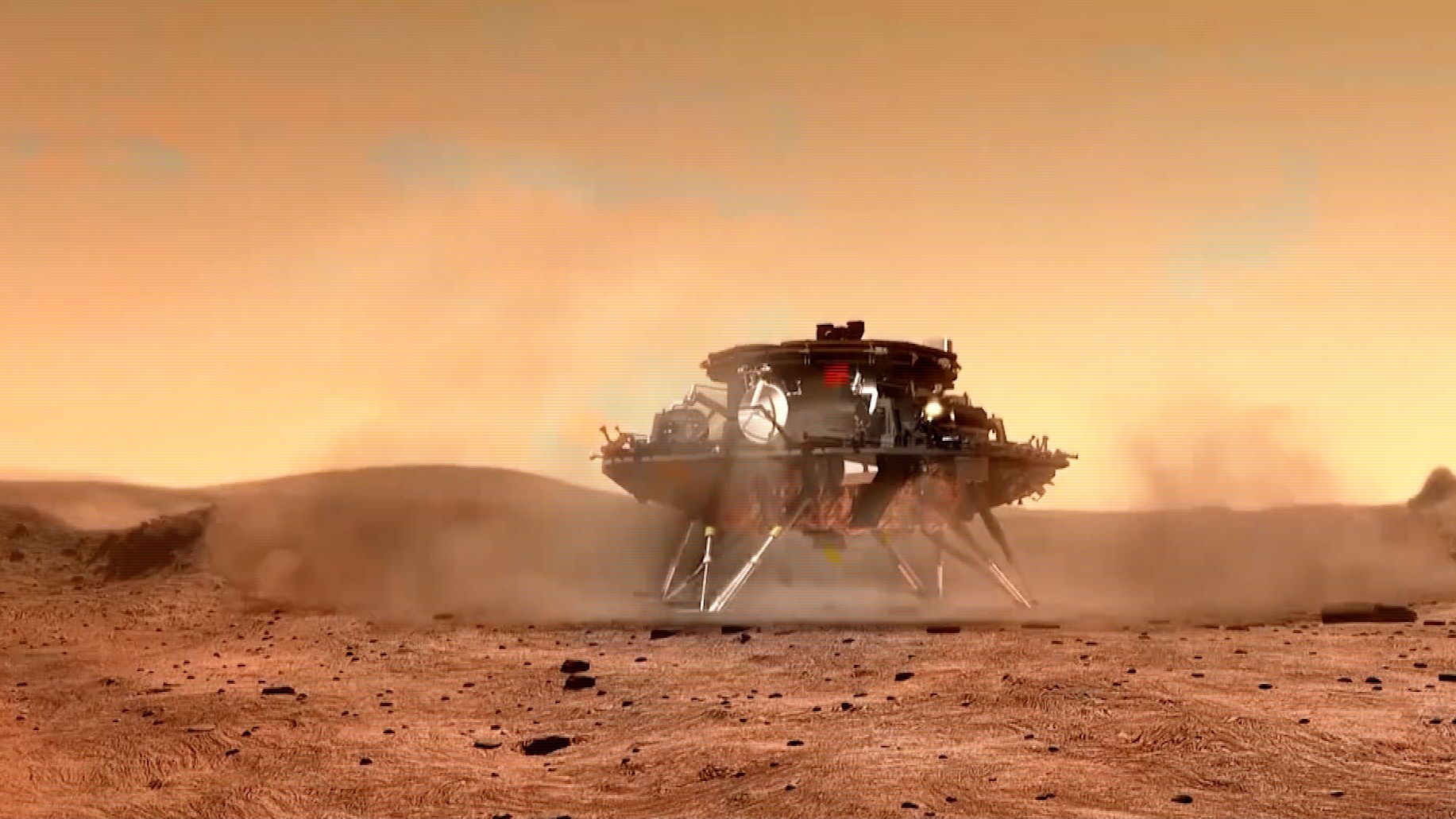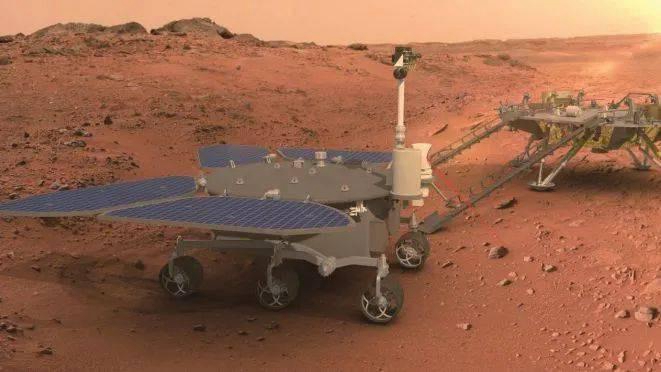
An illustration of the Tianwen-1 landing module. /CNSA
An illustration of the Tianwen-1 landing module. /CNSA
Editor's note: Anthony Moretti is an associate professor at the Department of Communication and Organizational Leadership of Robert Morris University. The article reflects the author's views and not necessarily those of CGTN.
The U.S. and Chinese space agencies continue to gather significant data from their respective and current explorations of Mars. Perseverance, which landed on Mars about three months ago, and Zhurong, which began its mission days ago, are providing the world with remarkable images of the Red Planet and collecting important samples that will be examined by scientists.
Indeed, these are heady times for U.S. and Chinese scientists. But, as you might expect, the Western narrative of China's mission suggests it ought not be celebrated and is inferior to the U.S. effort.
The most negative comment about China's successful landing on Mars came from a U.S. politician. Maine senator Angus King bemoaned that Zhurong's "landing reinforces the point that we don't own space any more."
In case anyone did not understand what he meant, the senator then said, "If they can land a rover on Mars, there's a lot of other things they can do that might not be so benevolent." Echoes of Washington's Strategic Competition Act, which is filled with all sorts of empty fears about China, were on full display in the senator's harangue.
The senator's ridiculous comments were a stark reminder that U.S. politicians agree on almost nothing except that China presents nothing but trouble for U.S. interests. Without question, Washington's political class wants Americans to believe that on Earth, on Mars and presumably anywhere else in the solar system, China is determined to undermine U.S. hegemony.
Western media and multiple non-journalism organizations appear quite content to parrot this unfounded narrative.
NBC News, in its report of the successful landing of Zhurong, urged its audience to understand that China had "lofty ambitions for space exploration." The Guardian's account included a reminder that China had faced the wrath of the West just one week earlier because of "a breach of etiquette" relating to another space rocket returning to Earth.

Artistic depiction of the Mars rover Zhurong. /CMG
Artistic depiction of the Mars rover Zhurong. /CMG
The American Chemical Society announced that the U.S. mission "aims to, for the first time, collect martian samples that will one day be returned to Earth." In addition, "The NASA spacecraft will use new technology to pick a safe landing site." And China's mission? If the capsule made it, then the mission would represent "China's first successful Mars landing."
That was it; nothing about the experiments during, or purpose of, the mission was discussed. Later, readers were reminded that Perseverance would remain active for 669 Mars days, while Zhurong would function for only 90 Mars days.
A couple of days ago, the Associated Press offered a positive account of Zhurong's arrival on Mars, but it, too, could not resist adding this reminder: "The U.S. has had nine successful landings on Mars since 1976."
Buried even further in the AP report was the congratulatory message sent by a top NASA administrator: "Thomas Zurbuchen tweeted his congratulations, saying, 'Together with the global science community, I look forward to the important contributions this mission will make to humanity's understanding of the Red Planet.'"
You will notice nothing in Mr. Zurbuchen's statement about competition, hegemony or fear. Rather, there's excitement about "humanity's understanding" of Mars expanding. This is what valuing a shared future looks like. This also is the critical difference between seeing the U.S.-China relationship as one of competition and friction versus cooperation and friendship.
The U.S. media is focused heavily on the latest war between Israel and Hamas, and that intense coverage explains why so few commentators have added to the litany of (false) accusations and (unnecessary) criticism of China's "ambitions" for space exploration. One can imagine if the United Kingdom or Japan had landed a rover on Mars for the first time that heaps of praise and goodwill would fill the pages of Western newspapers and broadcast news programs.
But praising China – for anything – in the United States is welcoming criticism from all sorts of places. As was often demonstrated during the Cold War, (empty) accusations that the news organization (or the university professor, come to think of it) has gone soft and is failing to adhere to the "China is the boogieman" theme that dominates the political chatter will be hurled from the public and private spheres.
A last thought: Sen. King, please be aware that no country owns space. It is there to be explored by all nations, and cooperation among those nations will benefit all of humanity.
(If you want to contribute and have specific expertise, please contact us at opinions@cgtn.com.)

